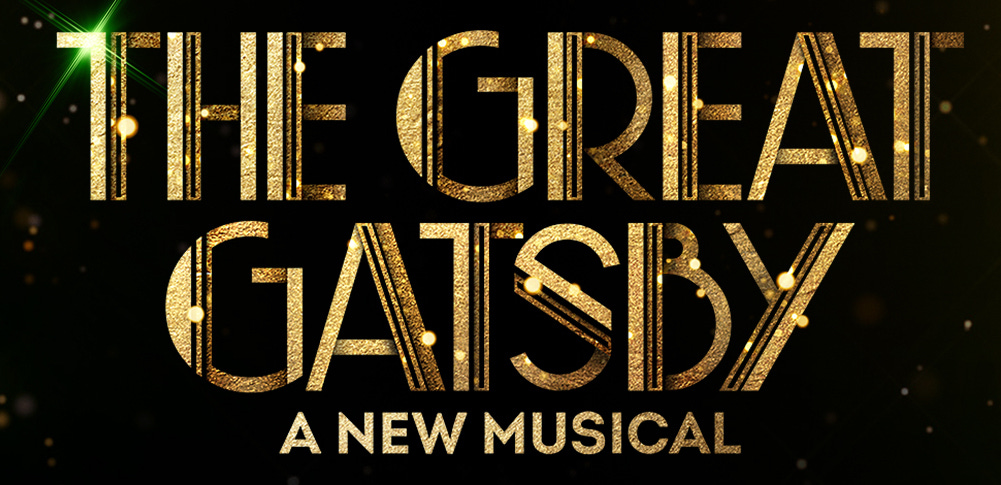Give Me Back My Book: "THE GREAT GATSBY"
This Broadway season has made musicals out of my two favorite books as a kid: S.E. Hinton’s The Outsiders and F. Scott Fitzgerald’s The Great Gatsby. What are the odds — two books that most deeply sang to me as a young reader turning up in the same season as Broadway musicals?
Not long enough odds, I’m afraid.
I won’t be catching The Outsiders on Broadway. My affection for it is too personal, sweet and raw to see it suddenly sing and dance. When I was ten, I pulled The Outsiders off a local library shelf, innocently, and finally stopped re-reading it incessantly three or four years later. A transfixing gang drama about mid-1960s tough boys in Tulsa, Oklahoma, The Outsiders was written (unbeknownst to me, then) by a 16-year-old Tulsa teenager named Susan Eloise (S.E.) Hinton, who masked her age and her gender behind a furious tale of “greasers” with fanciful names like “Ponyboy,” “Johnnycake” and “Two-Bit,” who lived, for me, indelibly in Hinton’s taut, yet tender prose. The book gave my rebellious, alienated young self its first home away from home. And I’m sticking with that.
As for The Great Gatsby, it introduced me to The Jazz Age as a still unfledged yeshiva boy — a place in time that I instantly wanted to reimagine myself in forever (kind of like Jay Gatsby himself, escaping not Middle America but Talmud class). Fitzgerald’s lush, wistful, lacerating novel also made me want to be a writer. (Apparently, it affected the young S.E. Hinton the same way.)
Can Jay Gatsby sing? Should he? In a 1999 Great Gatsby opera at the Met by the composer John Harbison, singing just flattened poor Gatsby utterly, depriving him of his mystery, his charisma, his allure and, in an odd way, his voice.
Still, I figured, what the hell, I might as well hear Jeremy Jordan take a wack at the Old Sport. You never know.
Bad idea, as it turned out. Gatsby on Broadway misses just about every nuance of Fitzgerald’s haunted spirit. The musical is not even based on his novel, really, but rather on Baz Luhrmann’s 2013 movie of the book. The scenes and the sounds are mostly derived from Luhrmann’s audacious, contempo-anacronistic cinematic riff on Fitzgerald, with bling-y Luhrmann-esque costumes by Linda Cho, and sets by Paul Tate dePoo III, that look great but relentlessly pull focus from the characters and the story; similarly attention-grabbing, over-stimulated choreography by Dominique Kelley (aside from a very tasty tap dancing bit); and generic power-pop arias by composer Jason Howland, who somehow keeps getting handed Broadway gigs (Little Women, Paradise Square) despite supplying (or perhaps because he supplies) scores that are indistinguishable one from another.
Poor Jeremy Jordan is reduced to flinging his sweet pipes at Hyland’s endlessly repetitive tune balloons while striking stiff matinee-idol poses opposite a similarly denuded Eva Noblezada, lifeless as Gatsby’s beloved Daisy Buchanan. I have always admired these two exceptional singing actors but their onstage chemistry here is nil and their songs together only underscore this — though clearly it is no fault of theirs that director Marc Bruni has staged these numbers so monochromatically. Gatsby and Daisy are left to just stand and deliver.
Baz Luhrmann’s movie wisely centered its visual pomp on Fitzgerald’s gorgeous prose — as voiced by the narrating character of Nick Carraway (Tobey Maguire, to you and me). Gatsby, the movie-mimicking musical, buries Fitzgerald’s words, leaving only plot points in its wake. The enigmatic wonder and, ultimately, the tragedy that is Jay Gatsby? All gone. The book I remember? Thankfully, its right here where I left it.


